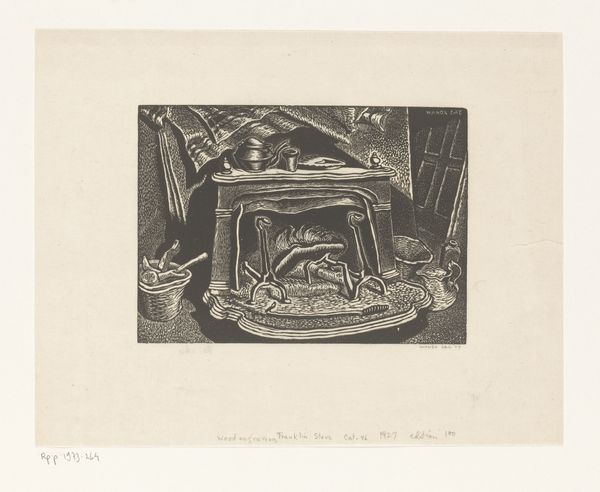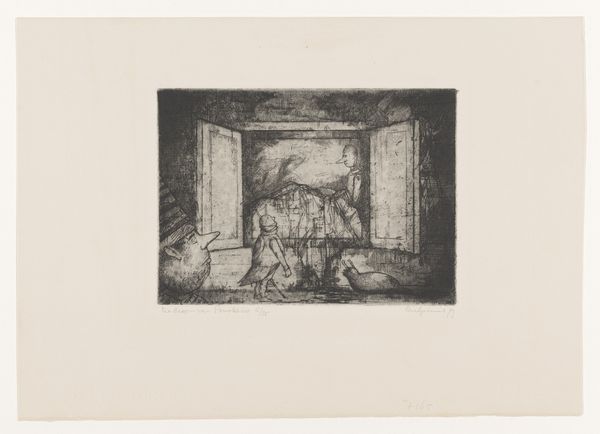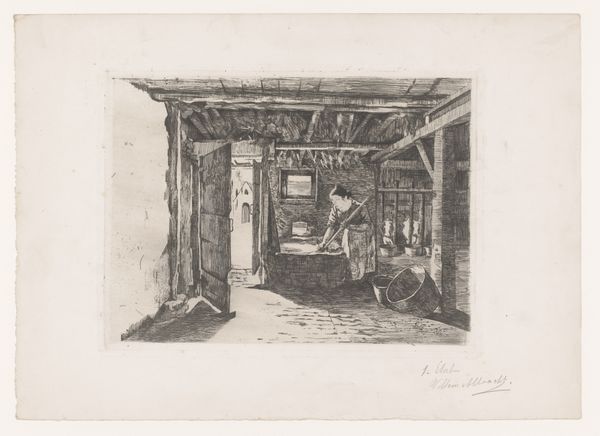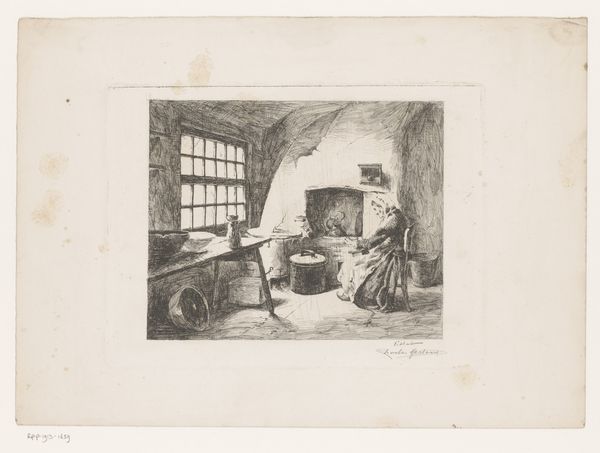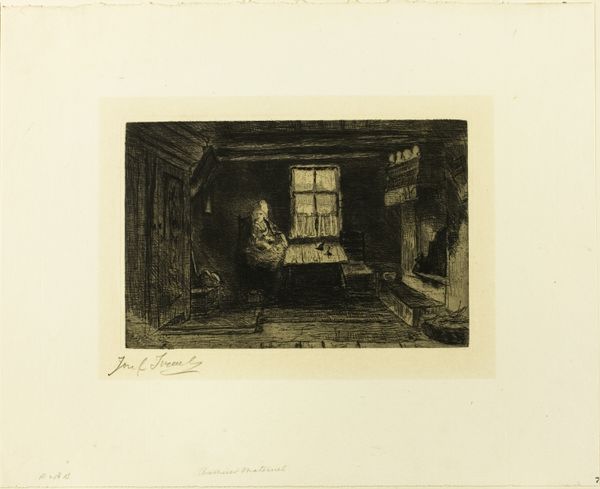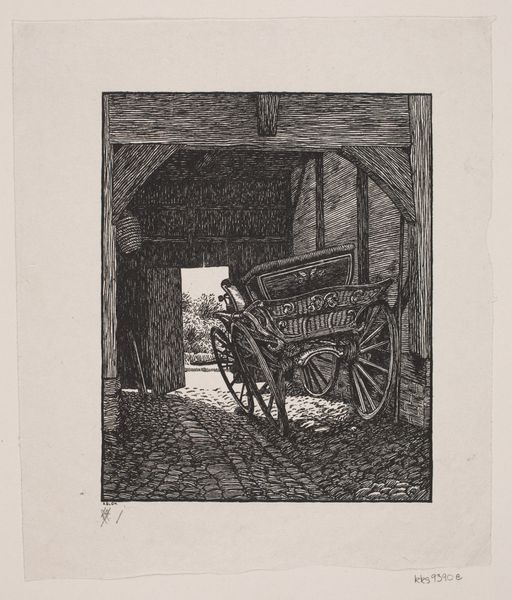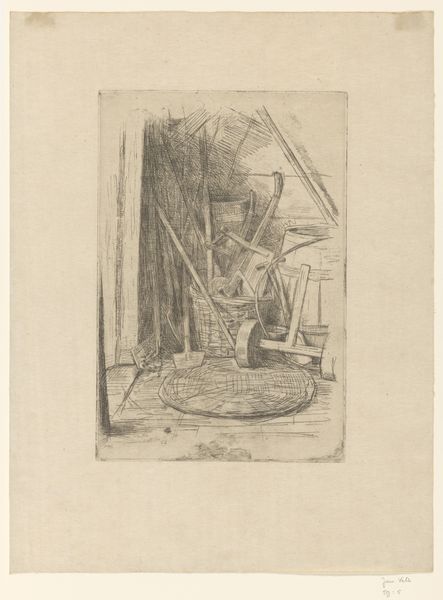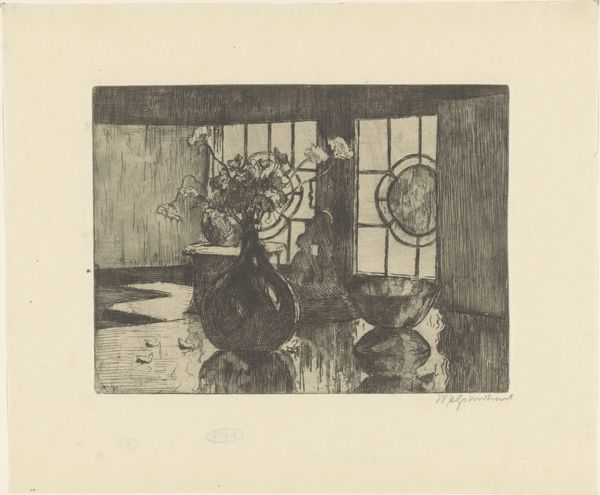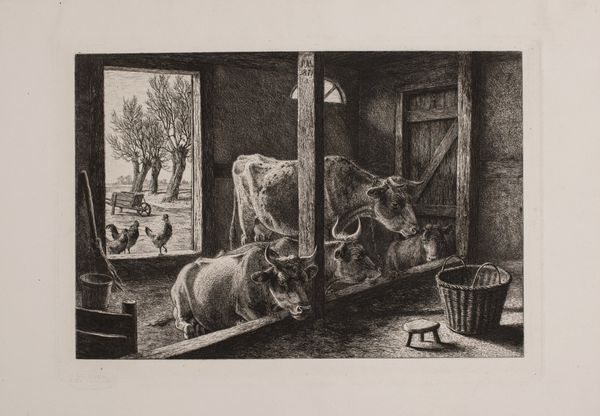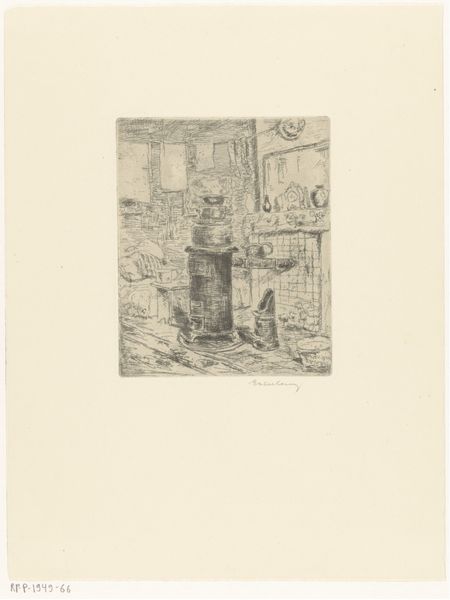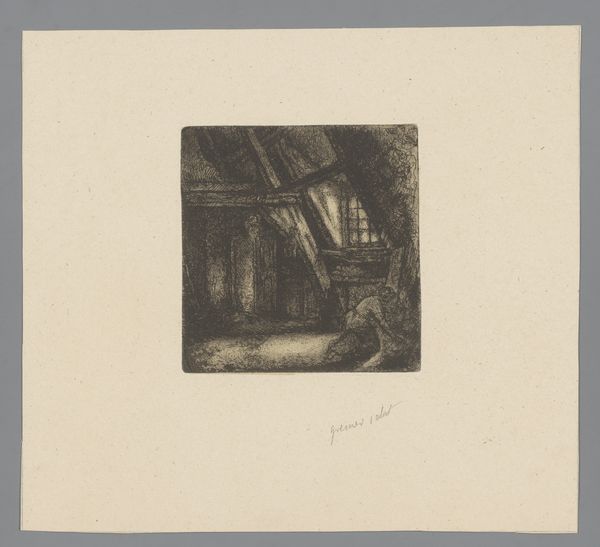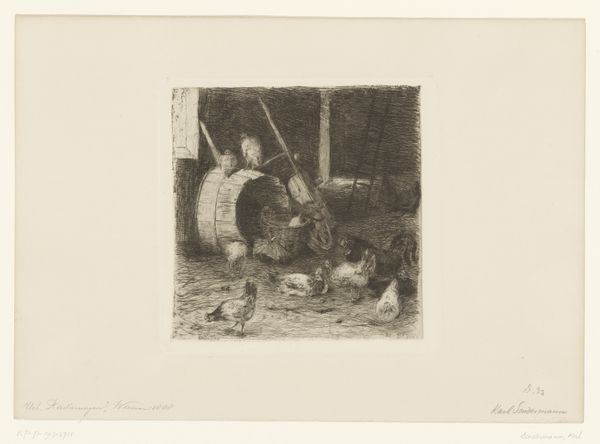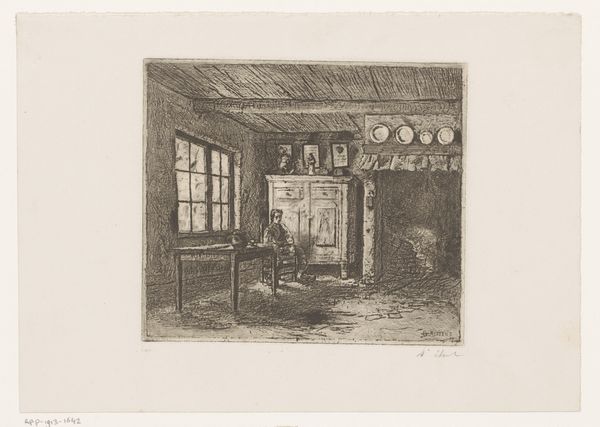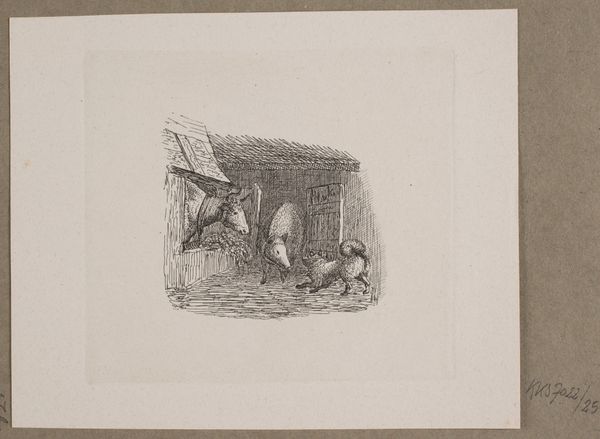
lithograph, print
#
toned paper
#
lithograph
# print
#
old engraving style
#
personal sketchbook
#
sketchbook drawing
#
realism
Dimensions: height 292 mm, width 403 mm
Copyright: Rijks Museum: Open Domain
Editor: Wanda Gág's lithograph, "Spinnewiel," from the early to mid-20th century, depicts a domestic interior. The composition is really striking, with strong contrasts of light and shadow, a dark room and a stark light source to the left. It's quite captivating. What do you make of it, looking at its formal elements? Curator: It's crucial to examine how Gág manipulates light and shade. Notice how the deep blacks are not just voids, but actively shape our perception of the forms. The chiaroscuro technique creates a dynamic interplay, heightening the dramatic tension within this enclosed space. Note the wheel itself; the radiating lines create a rhythm that moves the eye, contrasting with the more static rectangularity of the door. What visual relationships do you perceive between these shapes? Editor: I see how the circular form of the spinning wheel is repeated in the bottles placed underneath the bench. They seem to mirror one another almost, yet they exist within contrasting zones of light and shadow. I would love to know, what are you initial impressions on this particular design, keeping in mind that the work contains the characteristics of personal sketchbooks with the realism styles. Curator: An astute observation. This use of geometric correspondence introduces visual harmony. Moreover, the seemingly haphazard placement of objects creates spatial organization and balance that anchors the overall structure of the image. It's this deliberate composition, rendered with such graphic precision, that elevates the work beyond mere representation. How do you think that materiality enhances its effect? Editor: Now that you point it out, I can better understand her play on light in such an important way. I will keep that in mind next time I observe tonal drawings, sketches, or illustrations. Thanks. Curator: Precisely, studying the interplay between tonal relationships and textures is paramount to appreciating Gág’s technical command, thereby granting us a profound glimpse into the inherent poetry residing in such graphic art.
Comments
No comments
Be the first to comment and join the conversation on the ultimate creative platform.
